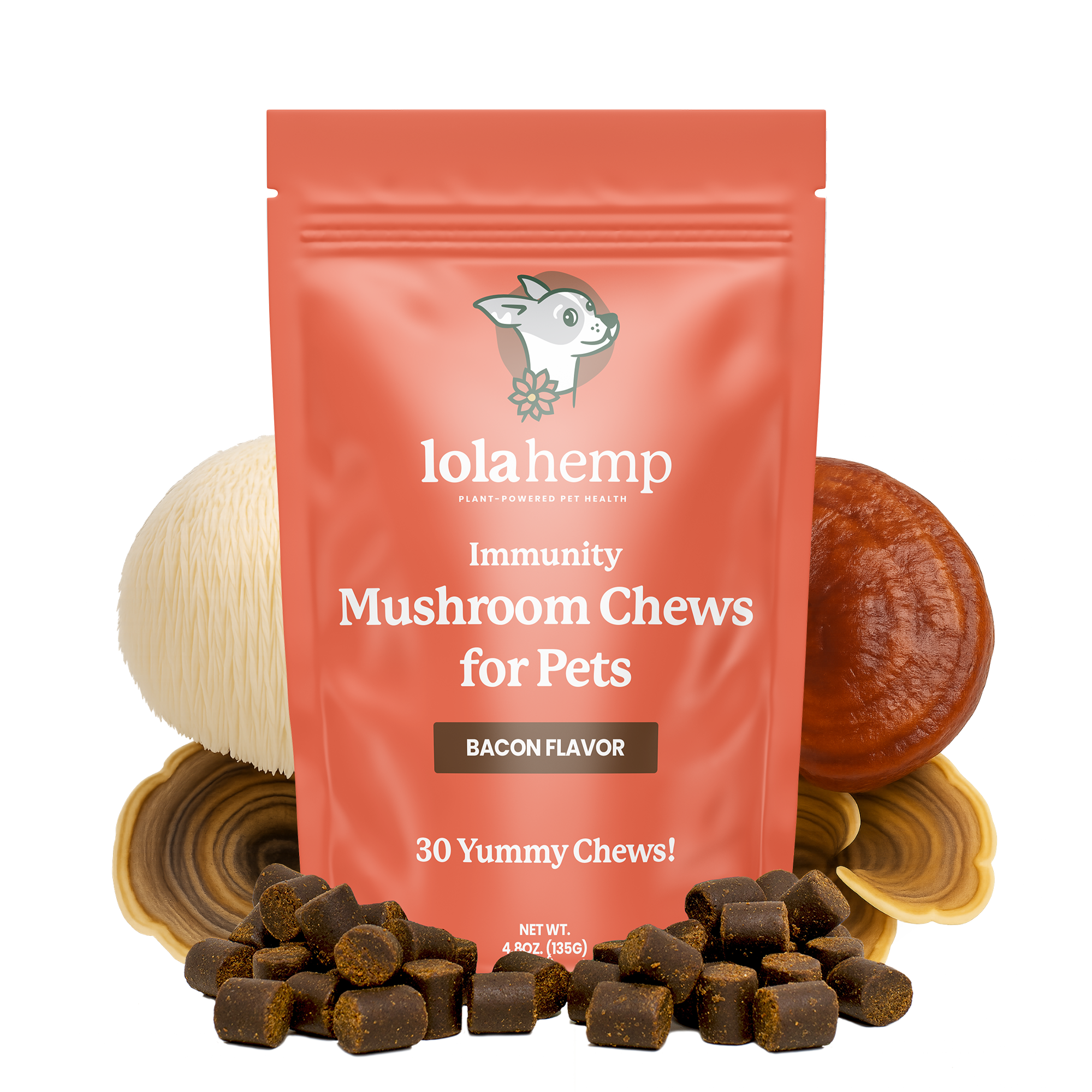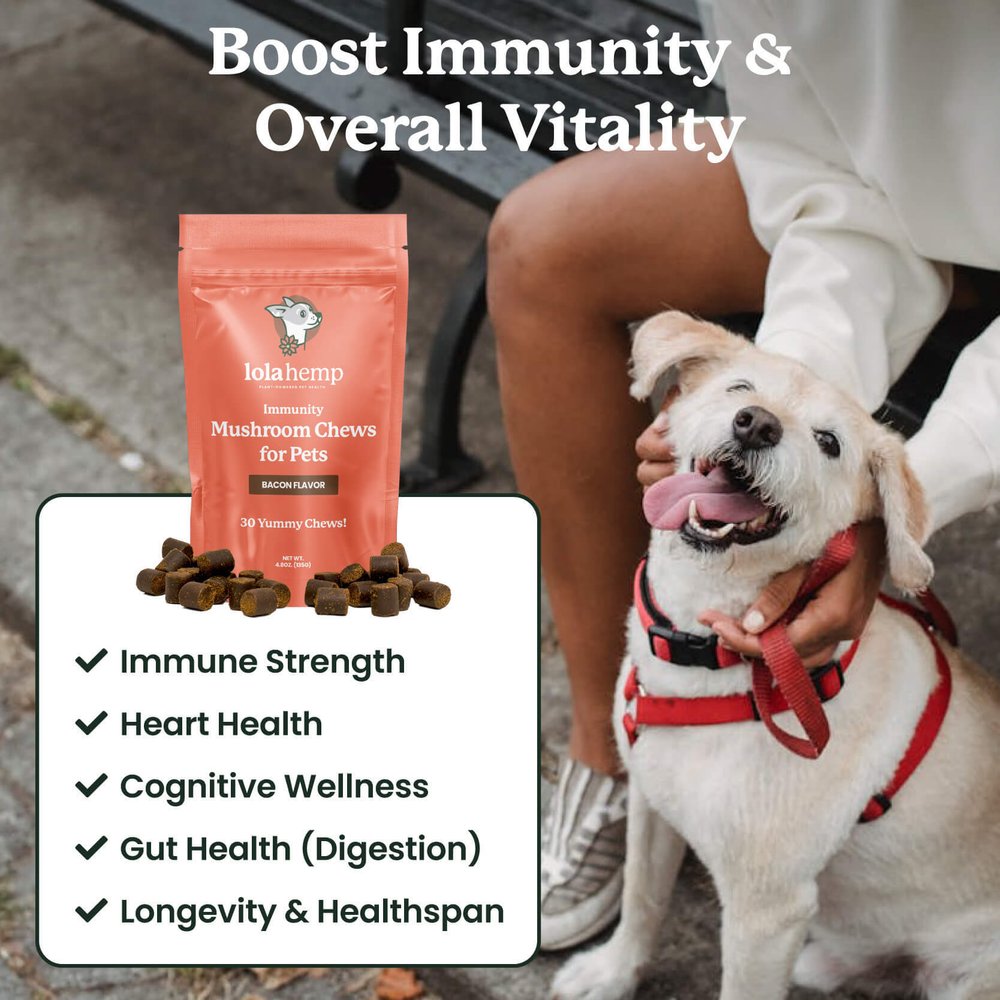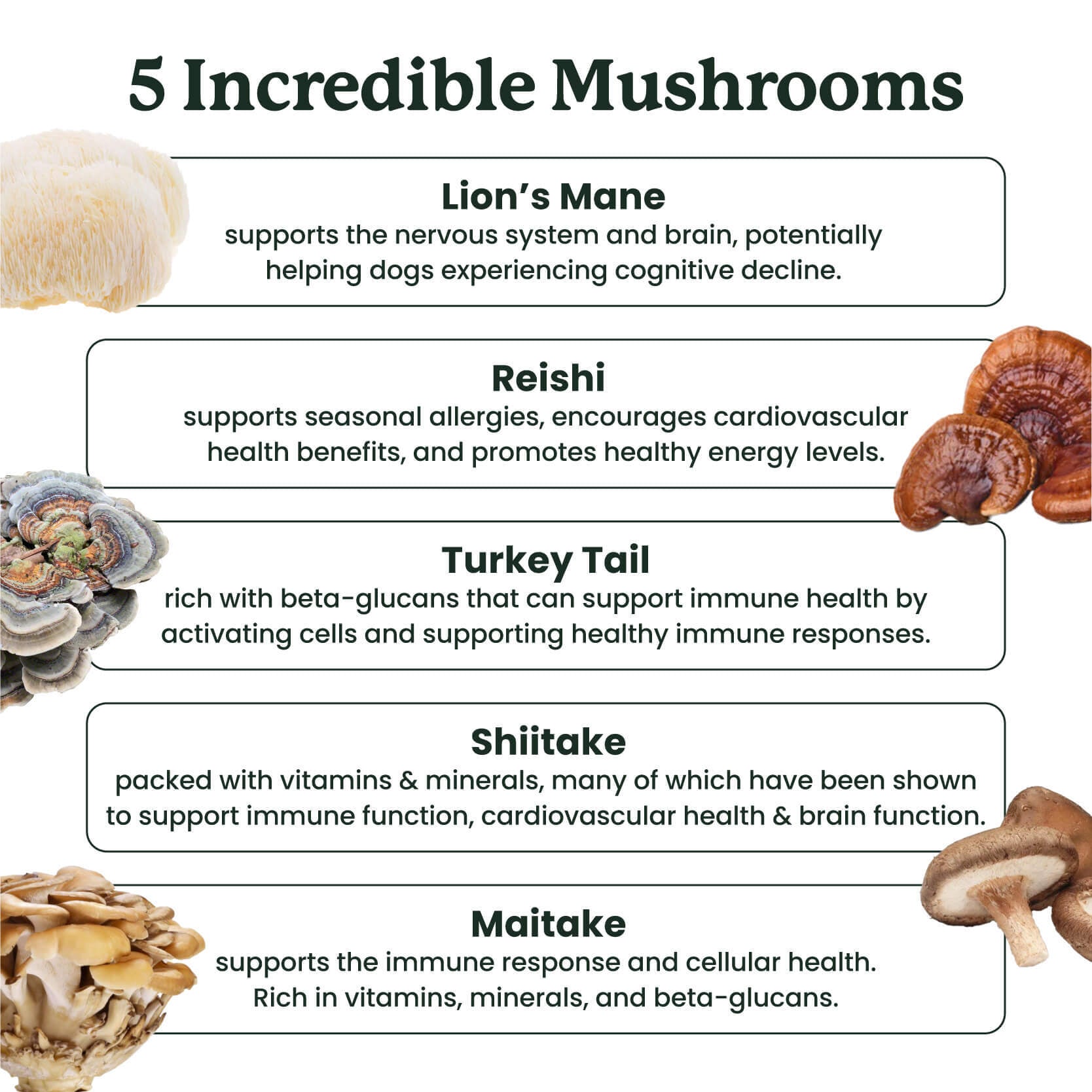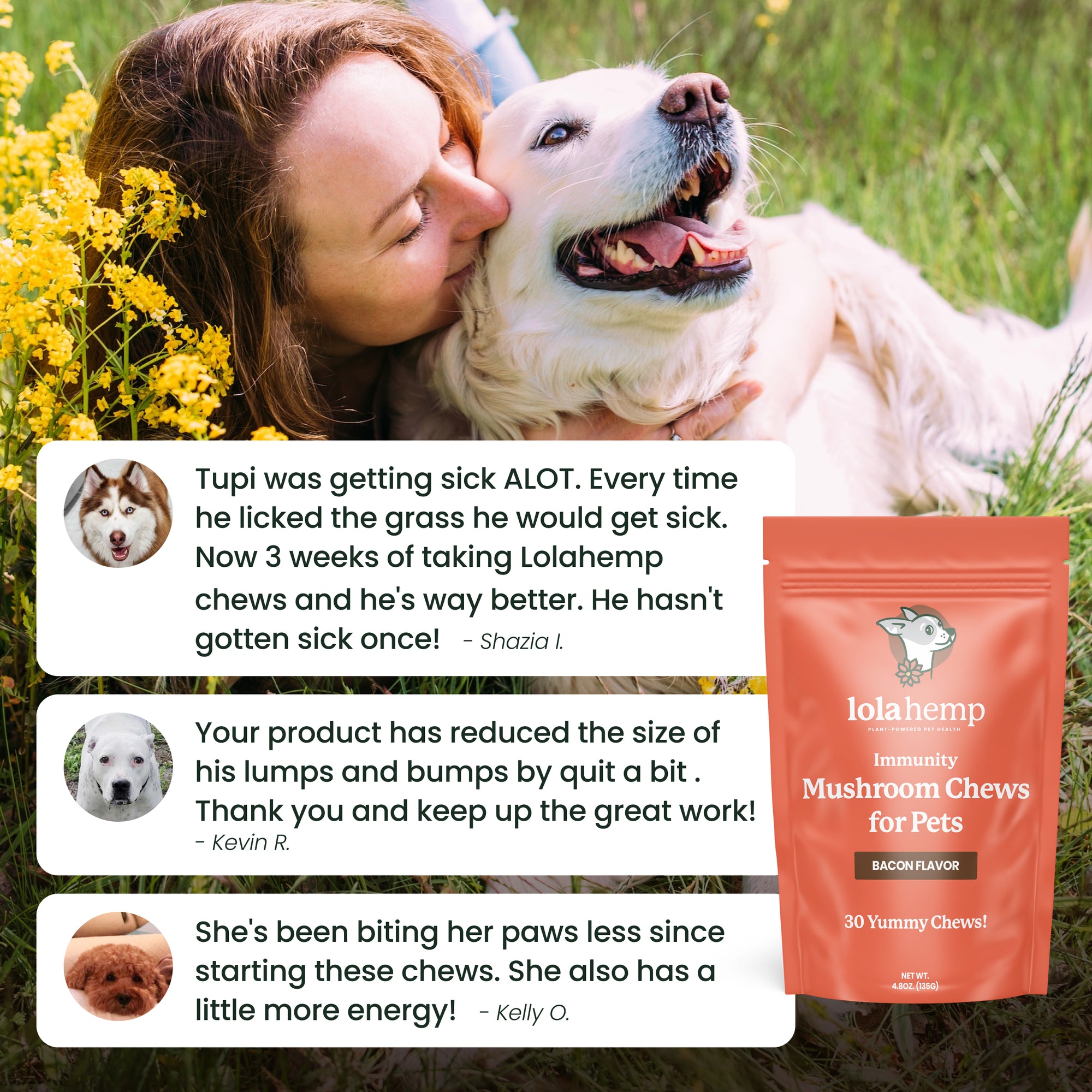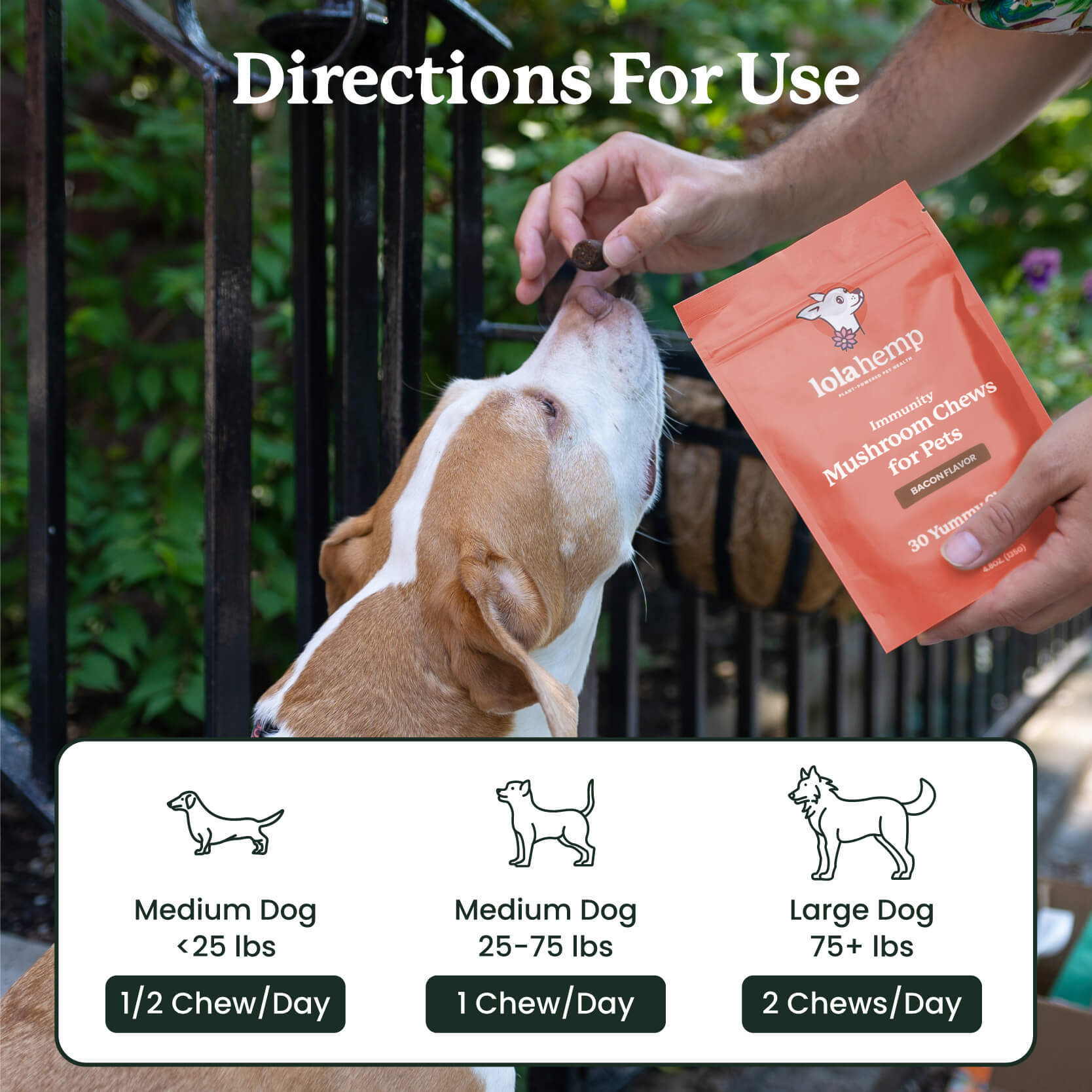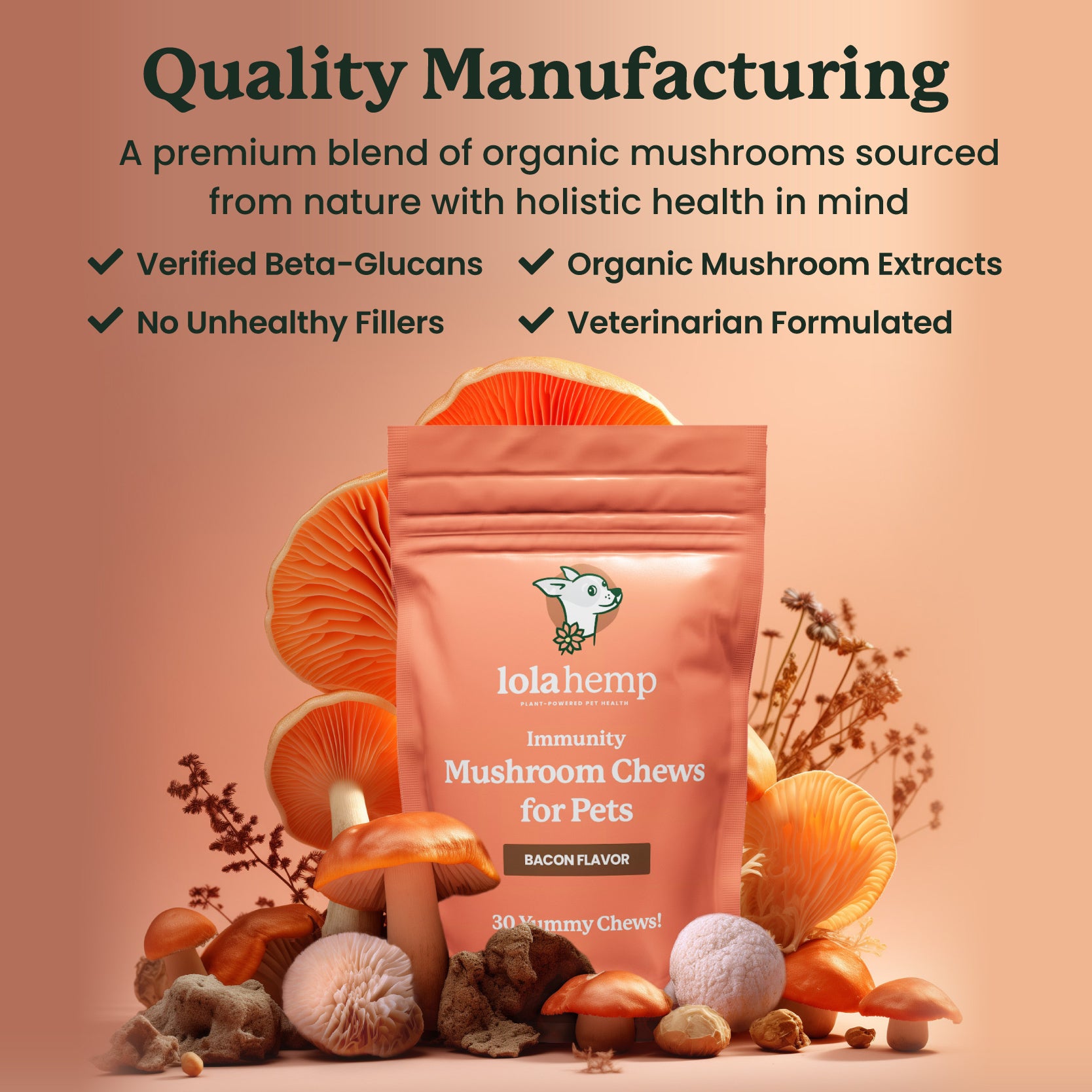Supplements with turkey tail mushrooms for dogs could potentially boost your dog’s immune system and even aid in the treatment of some disorders.
As pet owners, we are always looking for ways to enhance the health and well-being of our furry companions. Turkey Tail mushrooms, a natural superfood, have been recognized for their immune-boosting and disease-fighting properties. Before incorporating this powerful mushroom into your dog’s diet, it's important to understand its benefits, potential side effects, and the correct dosage.
Turkey Tail Mushrooms for Dogs
Turkey tail mushrooms are increasingly being used for dogs to help immune system health, gut health, and even some forms of cancer in dogs. A University of Pennsylvania study states that a compound derived from Turkey Tail mushrooms "lengthens survival time in dogs with cancer".
While more research is needed to fully understand the benefits of turkey tail for dogs, early evidence is suggesting that it can have profound effects when used regularly.
Note that results come primarily when turkey tail and other mushroom supplements are used over a period of time (weeks & months). Consistent use will give you a much better chance at seeing significant results. Additionally, it's important to find a high-quality product formulated specifically for dogs rather than simply feeding your pet turkey tail mushrooms.
A good quality turkey tail product used over a period of time has a good chance of supporting your dog's health noticeably.
Benefits of Turkey Tail Mushroom for Dogs
The Turkey Tail mushroom is packed with beneficial compounds that can significantly contribute to your dog’s overall health. Below are some of the key benefits this remarkable mushroom offers:
1. Immune System Support
Turkey Tail mushrooms contain beta-glucans, a type of polysaccharide known for its immune-modulating properties. These compounds help stimulate the immune system, making it more effective in fighting off infections and diseases.
2. Digestive Health
Rich in prebiotics, Turkey Tail mushrooms support gut health by promoting the growth of beneficial bacteria. A balanced gut microbiome plays a crucial role in maintaining a strong immune system and overall well-being.
3. Antioxidant Protection
Turkey Tail mushrooms are loaded with antioxidants, which help protect cells from damage caused by free radicals. This can slow down the aging process and reduce inflammation, benefiting dogs with chronic conditions or those exposed to environmental pollutants.
4. Liver Health
Compounds in Turkey Tail mushrooms aid in liver detoxification and function. A healthy liver is essential for metabolism, detoxification, and overall vitality.
5. Skin and Coat Enhancement
Thanks to their high antioxidant content, Turkey Tail mushrooms support skin and coat health, helping to maintain a shiny, healthy appearance while reducing oxidative stress.
6. Cardiovascular Health
Turkey Tail mushrooms contribute to heart health by helping regulate blood pressure and cholesterol levels. A strong cardiovascular system ensures optimal oxygen and nutrient delivery throughout the body.
Turkey Tail Mushroom Chews for Dogs
Rather than using a supplement with Turkey Tail alone, pet owners can opt for mushroom chews that combine various medicinal mushrooms beneficial to dogs. These blends provide a broader spectrum of health benefits.
Possible Side Effects and Precautions
While Turkey Tail mushrooms are generally safe, some dogs may experience mild side effects such as diarrhea, vomiting, or appetite changes. If these occur, discontinue use and consult a veterinarian.
Additionally, Turkey Tail mushrooms can interact with immunosuppressive drugs, so it is important to speak with a veterinarian before adding them to your dog's diet, especially if they are on medication.
Safety of Turkey Tail Mushrooms for Dogs
Turkey Tail mushrooms are considered safe when used appropriately. However, some dogs may have allergic reactions. Introduce the supplement gradually and monitor your pet for any signs of itching, redness, or breathing difficulties. If any adverse reactions occur, stop using the supplement and seek veterinary advice.
Choosing a high-quality Turkey Tail mushroom supplement designed for dogs ensures safety and effectiveness. Avoid products with fillers or additives that may be harmful to pets.
Turkey Tail Dosage for Dogs
The recommended dosage varies based on the dog's weight, age, and health status. A general guideline is 25–50 mg of Turkey Tail mushroom per kilogram of body weight, given once or twice daily. Always consult a veterinarian for precise dosing.
| Weight (lbs) | Dosage (mg) |
|---|---|
| 5 | 125 - 250 |
| 10 | 250 - 500 |
| 15 | 375 - 750 |
| 20 | 500 - 1000 |
| 25 | 625 - 1250 |
| 30 | 750 - 1500 |
| 35 | 875 - 1750 |
| 40 | 1000 - 2000 |
| 45 | 1125 - 2250 |
| 50 | 1250 - 2500 |
Conclusion
Turkey Tail mushrooms offer numerous health benefits for dogs, particularly in immune and digestive support. When selecting a supplement, opt for high-quality, dog-safe products. Consulting a veterinarian before introducing any new supplement ensures your pet receives the proper dosage and avoids potential interactions.
Frequently Asked Questions About Turkey Tail Mushrooms for Dogs
1. What are Turkey Tail mushrooms used for in dogs?
Turkey Tail mushrooms are often used to support immune and digestive health, thanks to their beta-glucans and antioxidants that help balance the immune system.
2. Are Turkey Tail mushrooms safe for all dogs?
They are generally considered safe when used properly. However, dogs on medication or with allergies should only take them under veterinary supervision.
3. Can Turkey Tail mushrooms help dogs with cancer?
Some studies suggest Turkey Tail compounds may support dogs undergoing cancer treatment, but they should never replace veterinary-prescribed therapies.
4. What side effects can Turkey Tail mushrooms cause?
Mild digestive upset such as diarrhea or reduced appetite can occur in some dogs. Stop use and consult your veterinarian if symptoms persist.
5. How long does it take to see results from Turkey Tail supplements?
Visible results may take several weeks of consistent use. Benefits are often gradual and depend on the individual dog's condition and overall health.

